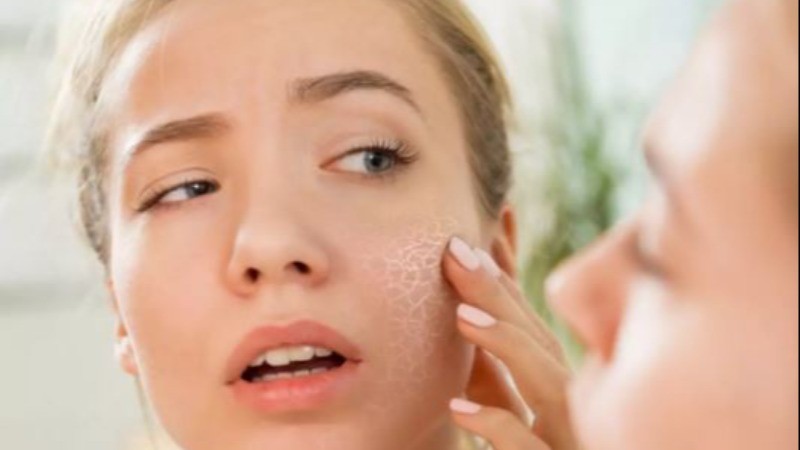
Dry skin is a common concern that many people experience. While occasional dryness can be normal, some individuals suffer from excessively dry skin, which can lead to discomfort and a dull appearance. This condition arises when the skin lacks moisture, making it feel rough, flaky, and lifeless. Various factors can contribute to this issue, including changes in weather, environmental conditions, and lifestyle choices. Understanding these factors and adopting effective skincare practices can help alleviate dryness and promote healthier skin.
Causes of Dry Skin
Environmental Factors: Seasonal changes, especially during winter, can significantly affect skin moisture levels. Cold air lacks humidity, which can lead to increased dryness. Additionally, exposure to wind, sun, and harsh temperatures can strip the skin of its natural oils.
Improper Skincare Routine: Using products that are not suited for your skin type can exacerbate dryness. For instance, using harsh soaps or cleansers that contain alcohol can strip the skin of its moisture. Similarly, neglecting to use a moisturizer regularly can lead to dry, flaky skin.
Insufficient Hydration: Failing to drink enough water throughout the day can result in dehydration, which impacts not only overall health but also skin moisture levels. A well-hydrated body reflects in healthy, glowing skin.
Skin Conditions: Certain skin conditions, such as eczema, psoriasis, and dermatitis, can cause chronic dryness and irritation. These conditions often require specific treatments to manage effectively.
Aging: As we age, our skin produces less natural oil, leading to increased dryness. Additionally, the skin’s ability to retain moisture diminishes over time, making it more susceptible to dryness.
Importance of Moisturization
Maintaining skin moisture is crucial for overall skin health. Moisturizers help to hydrate the skin, preventing it from becoming dry and cracked. They create a protective barrier that locks in moisture and shields the skin from environmental aggressors. Here are some effective strategies to combat dry skin:
Regular Use of Moisturizers: It is essential to apply a good quality moisturizer or cream at least twice a day. Choose products that are formulated for your skin type, preferably containing hydrating ingredients such as hyaluronic acid, glycerin, and natural oils.
Develop a Skincare Routine: Establishing a proper skincare routine tailored to your skin type can make a significant difference. This routine should include cleansing, exfoliating (1-2 times a week), and moisturizing to maintain skin health.
Hydration: Drink an adequate amount of water daily to keep your skin hydrated from the inside out. Aim for at least 8-10 glasses of water, and consider increasing this amount if you are active or live in a dry climate.
Natural Remedies for Dry Skin
In addition to commercial products, several natural remedies can help alleviate dry skin. These can be easily incorporated into your nightly skincare routine:
Aloe Vera Gel: Known for its soothing properties, aloe vera gel is an excellent natural moisturizer. It contains essential nutrients and antioxidants that help relieve various skin issues. Apply aloe vera gel to your face before bed, gently massaging it in, and rinse it off with water after a few minutes.
Almond Oil: Almond oil is rich in vitamins E, A, and D, along with omega-3 fatty acids, making it highly beneficial for dry skin. It can help reduce wrinkles, dark spots, and signs of aging. Apply almond oil to your skin before sleeping to promote moisture retention.
Raw Milk: Raw milk is a natural moisturizer that can help soften and brighten the skin. Its lactic acid content aids in exfoliating dead skin cells, promoting a glowing complexion. Use a cotton ball to apply raw milk to your face before bed, allowing it to absorb overnight.
Rose Water: Rose water is known for its hydrating and soothing properties. It acts as a natural toner and can help maintain skin moisture. Apply rose water to your face before sleeping to enhance hydration and refresh your skin.
Honey: Honey is a natural humectant, meaning it attracts moisture to the skin. It has antibacterial properties and can help heal dry, cracked skin. Apply a thin layer of honey to affected areas and leave it on for about 20 minutes before rinsing off.
Addressing dry skin requires a combination of proper skincare practices, natural remedies, and a focus on hydration. By understanding the causes of dry skin and implementing effective solutions, you can restore your skin’s moisture balance and promote a healthy, radiant complexion. Remember, consistency is key in skincare, so make these practices a part of your daily routine for the best results.
Madhya Pradesh’s Healthcare Revolution: Thousands of Doctors to be Hired, Check Details
How to Make Collagen Cream at Home
Arthritis Pain Will Not Torment You Anymore—Just Adopt This Remedy